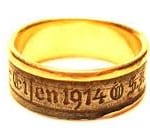Favorite Books of 2023
January 1, 2024
 Fueled by the conviction that stories sustain us because we were made to be nourished on the good, the true, and the beautiful, I determined to read one fiction book a month for this past year. And I read some very good stories! In addition to fiction, I have benefitted greatly this year from some solid works in philosophy, theology, biography, and spiritual formation. Without further ado, here are my favorite books read in 2023. As is custom, in my book log, I record the book title, author, and date completed, along with a one sentence description. This has been my practice since 2009. My book log now includes 635 entries. This year I read 43 books.
Fueled by the conviction that stories sustain us because we were made to be nourished on the good, the true, and the beautiful, I determined to read one fiction book a month for this past year. And I read some very good stories! In addition to fiction, I have benefitted greatly this year from some solid works in philosophy, theology, biography, and spiritual formation. Without further ado, here are my favorite books read in 2023. As is custom, in my book log, I record the book title, author, and date completed, along with a one sentence description. This has been my practice since 2009. My book log now includes 635 entries. This year I read 43 books.
Favorite Books of 2022
January 3, 2023 I love to read. Of course, being a professor helps. I get to read as part of my job. That’s good. But I also love to read for the sheer pleasure of it. When it comes to fiction, I love entering into secondary worlds and journeying along with the characters of the story. Often non-fiction reads like a good story too: life is life, story is story, and often the two kiss (a loose paraphrase of one of my favorite nonfiction stories of the year, All that is Sad is Untrue). (more…)
I love to read. Of course, being a professor helps. I get to read as part of my job. That’s good. But I also love to read for the sheer pleasure of it. When it comes to fiction, I love entering into secondary worlds and journeying along with the characters of the story. Often non-fiction reads like a good story too: life is life, story is story, and often the two kiss (a loose paraphrase of one of my favorite nonfiction stories of the year, All that is Sad is Untrue). (more…)
Favorite Books of 2021
January 10, 2022 I love to read. It’s partly why I’m an academic today. What could be better than reading, writing, teaching, and learning every day? Reading books awakens me: to truth, goodness, and beauty. I try, each year, to read broadly. This year, I managed to read 47 books. I’ve been recording every book read in a book log for over 10 years now. Whenever I finish a book, I list the date finished, the title, author, and a one sentence summary of the book. As has become my custom, I offer to you my favorite reads of the past year in philosophy, apologetics and theology, fiction, and non-fiction. (more…)
I love to read. It’s partly why I’m an academic today. What could be better than reading, writing, teaching, and learning every day? Reading books awakens me: to truth, goodness, and beauty. I try, each year, to read broadly. This year, I managed to read 47 books. I’ve been recording every book read in a book log for over 10 years now. Whenever I finish a book, I list the date finished, the title, author, and a one sentence summary of the book. As has become my custom, I offer to you my favorite reads of the past year in philosophy, apologetics and theology, fiction, and non-fiction. (more…)







